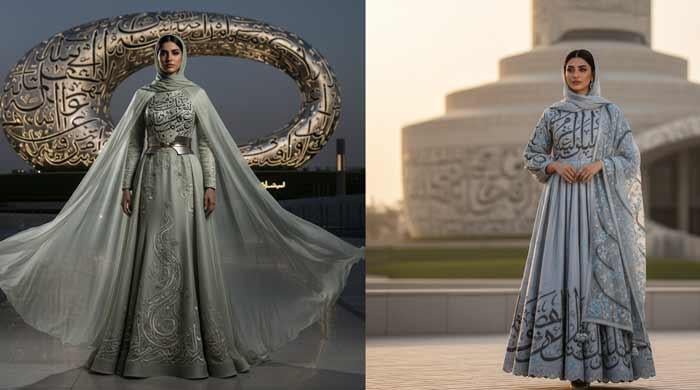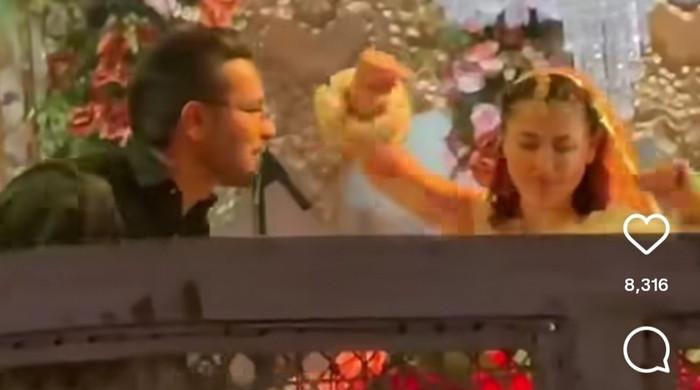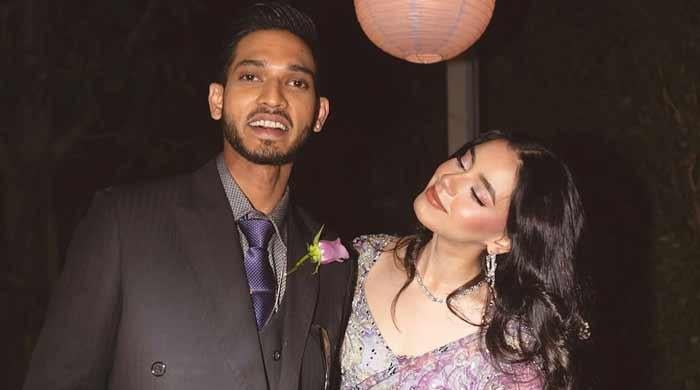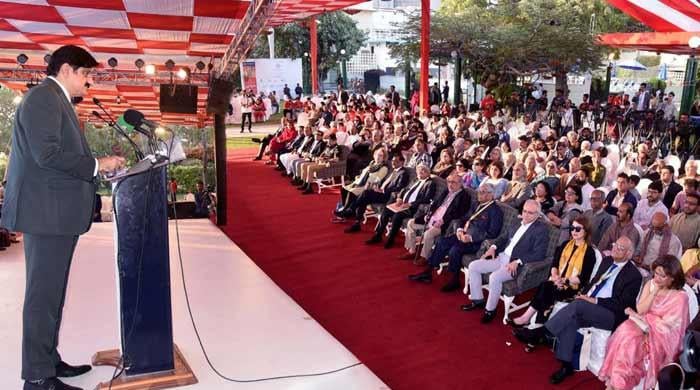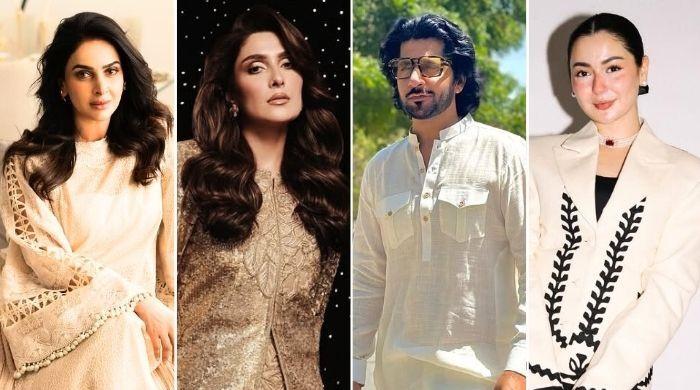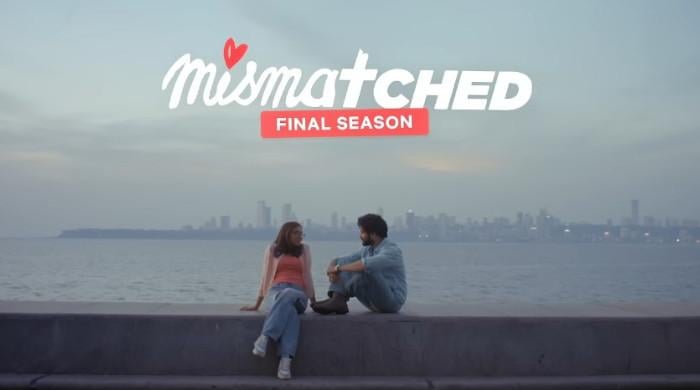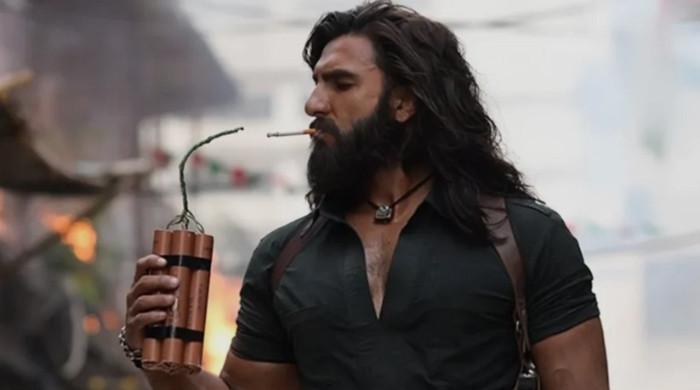Contemporary artistes upbeat as Pakistani music goes global with streaming platform
“Anybody in the world can now listen any new music,” says musician and producer Faisal Kapadia
November 15, 2023
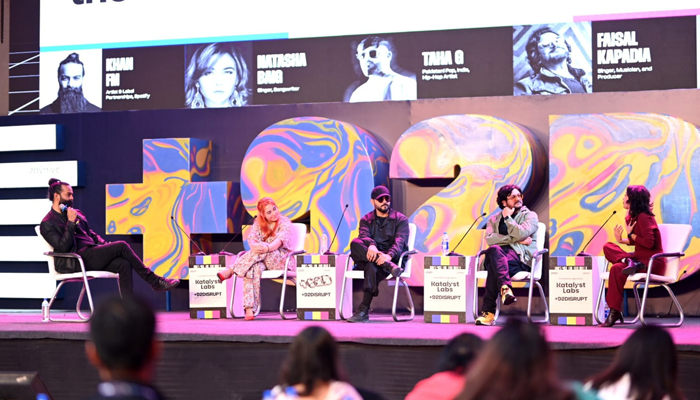
The stage was decked with musicians at the +92Disrupt to talk all things music in Pakistan, as Spotify brought the best of the country contemporary music scene under the same roof.
The digital music service hosted a panel discussion ‘Pakistani Tunes on the Global Radar’ with legendary pop artist and Strings veteran Faisal Kapadia, versatile vocalist Natasha Baig, hip-hop artist Taha G, and the dynamic Maria Unera.
Opening the discussion, Spotify’s Artist and Label Partnerships Manager for Pakistan, Sri Lanka, and Bangladesh Khan FM took Karachi’s audience at the Pakistani tech event on a captivating exploration of the impact and recognition of Pakistani music on the international stage, while the talent-packed panel later shared valuable insights into the country's rich musical heritage and its global resonance.
Addressing a packed hall, Khan shared that Spotify launched in Pakistan roughly 2.5 years ago and has since introduced several music projects, emphasising the much-appreciated Spotify’s EQUAL initiative which represents women empowerment in music, supports female creators all over Pakistan including singers, songwriters, and producers, which two of the panellists Baig and Unera are also a part of, helping their music reach global fame and millions of streams.
Khan also spoke about the platform’s RADAR Pakistan programme to support emerging artists. Musicians including Hasan Raheem, Taha G, Maanu as well as Hassan and Roshaan were featured during each quarter throughout this year.
“The future looks bright and even more spectacular because a program like RADAR Pakistan not only engages the artists but the wider creator community such as filmmakers, photographers, event organisers and more,” Khan said during his opening monologue ahead of the discussion.
The discussion kick-started with the musicians reflecting on their musical journeys and talking about how they’ve seen music transition into the technological realm with musician surpassing the limitations of culture and borders.
Natasha said she was delighted to see herself featured at Times Square in New York City, as part of the platform’s EQUAL programme. The Pakistani musician said what left her happier was knowing that she was the first-ever female singer from the remote Hunza valley in the country’s north. She also felt delighted about new, relatively lesser-known artistes experiencing popularity and getting a platform in the technologically advanced world.
Taha said the last two years have been revolutionary for musicians in Pakistan, particularly basking in the global popularity for his hip-hop tracks. “It’s been amazing,” he said.
Kapadia reminisced about the time when singers during the early 90s were reliant on PTV for their music to be loved and sung by all. Later, he said, came a private TV network running a standalone music channel that gave artistes the opportunity to share their work for a mass television-consuming audience. He shared that India was also considered a platform that musicians looked towards to make market their music, then came YouTube and now finally there are music streaming platforms.
“Anybody in the world can now listen to any new music,” Kapadia said.
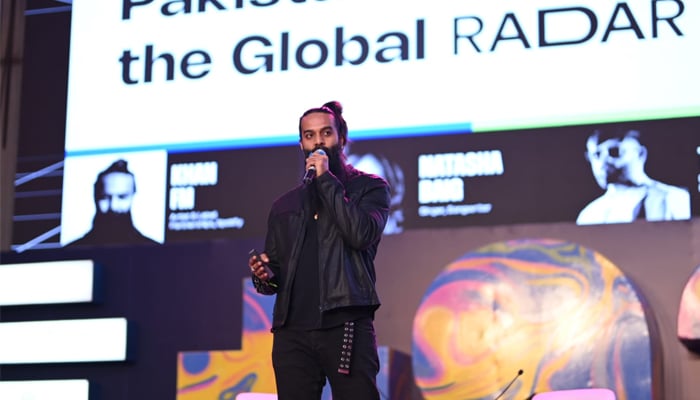
Unera, on the other hand, also expressed joy at her songs being listened to by Indonesians and people all over the world.
The singer spoke about the sense of representation she feels while being among a group of artistes on Spotify. “Being a Pakistani-Filipino female musician wasn’t easy in this industry,” the singer said.
She also talked about technological innovations for musicians with the advent of platforms like YouTube, which she said, was banned in Pakistan when she began making music. “So, I would post the covers on my Facebook,” she said, shining a spotlight on the revolutionary arrival of streaming platforms which have changed the game for present-day Pakistani artistes.
Later, following the end of the discussion, Khan sat down with Geo.tv to talk about the way Pakistan has seen the production of good quality music and the arrival of new voices in the industry, particularly with regard to streaming platforms like Spotify revolutionising the market for artistes.
“Artistes can directly track their streams, which is income for them and there is no middlemen. In Pakistan’s case, there is no wrong people in the middle either,” he said.
Letting Geo.tv in on some inside information, Khan said the next artiste in the platform’s RADAR programme would be a female. He made the revelation in response to a question regarding an all-male line-up in this year’s RADAR features.
“I can’t tell you who. But I hope you really enjoy the documentaries,” he said, adding that every RADAR documentary is directed by a woman and the core crew of the RADAR fest was comprised of women.
He also spoke about the artistes being featured on Times Square and gaining listenership as their faces shine on gigantic billboards in one of the world’s largest cities.
“There is the visibility angle to it. There are hundreds of thousands of people moving in that area, so for these artiste’s to be visible on the biggest screen in the US is a statement that Pakistani music is worth much more than this,” he said.
Khan spoke about female representation in music industry at a global level with an emphasis on the platform’s Times Square EQUAL initiative and how that has helped portray a soft image of Pakistan globally.
“The representation of Pakistan has been positive through all of these activations and storytelling. We are not in it alone. We need to work with artistes to put them up there. We need to work with people like yourself who have the ability and power to enable these artistes for their stories to be heard,” he said.
Khan added that every country comes with its own challenges, but with Pakistan there is a lot more positive to offer from its culture, heritage and music.
“Music in Pakistan right now has seen a very exciting shift,” he said.




